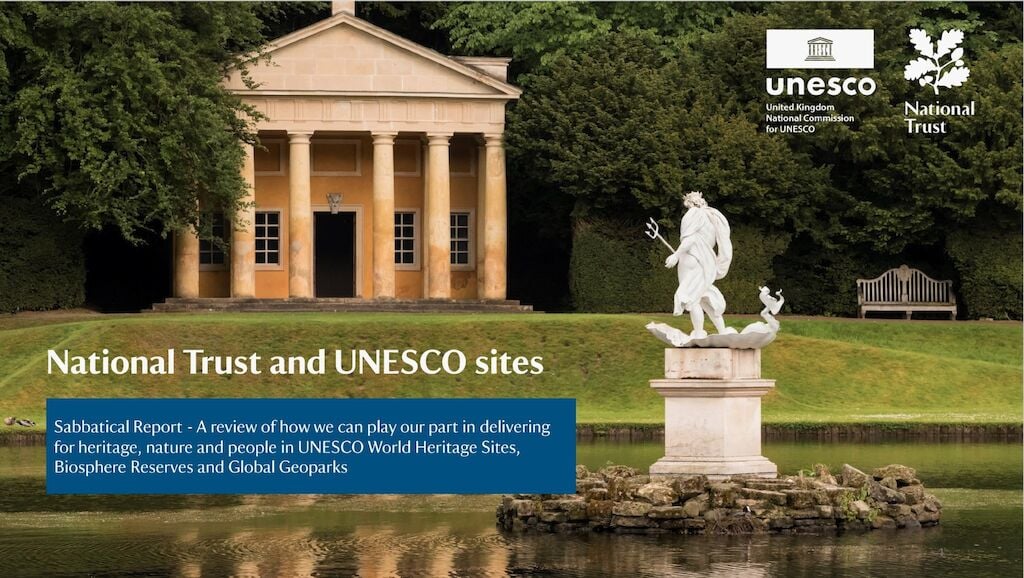The report was authored by Sarah France, World Heritage Site Co-ordinator for Fountains Abbey and Studley Royal, following a sabbatical with UKNC and Natural England, which provided new insights into the Trust’s evolving role in managing UNESCO World Heritage Sites and its wider commitment to sustainable development.
Speaking of the report launch Sarah stated:
"This sabbatical has been an incredible journey of discovery and collaboration. It has shown us the immense potential of UNESCO sites to drive positive change and foster a deeper connection between people, nature, and heritage."
Matt Rabagliati, Head of Policy, Research and Communications for UK National Commission for UNESCO, added:
"This insightful and timely report demonstrates how collaboration across institutions and designations can generate new insights and, in turn, enhance our collective stewardship of these sites. We hope this encourages others to consider their connection to the UK's UNESCO sites."
Download and read the Report
About the National Trust
The National Trust is an independent conservation charity founded in 1895 by three people: Octavia Hill, Sir Robert Hunter and Hardwicke Rawnsley, who saw the importance of the nation's heritage and open spaces and wanted to preserve them for everyone to enjoy. Today, across England, Wales and Northern Ireland, we continue to look after places so people and nature can thrive.
We care for more than 250,000 hectares of countryside, 890 miles of coastline, 1 million collection items and 500 historic properties, gardens and nature reserves. In 2023/24 we received 25 million visitors to our pay for entry sites. The National Trust is for everyone - we were founded for the benefit of the whole nation, and our 5.4 million members, funders and donors, and tens of thousands of volunteers support our work to care for nature, beauty, history for everyone, for ever.








